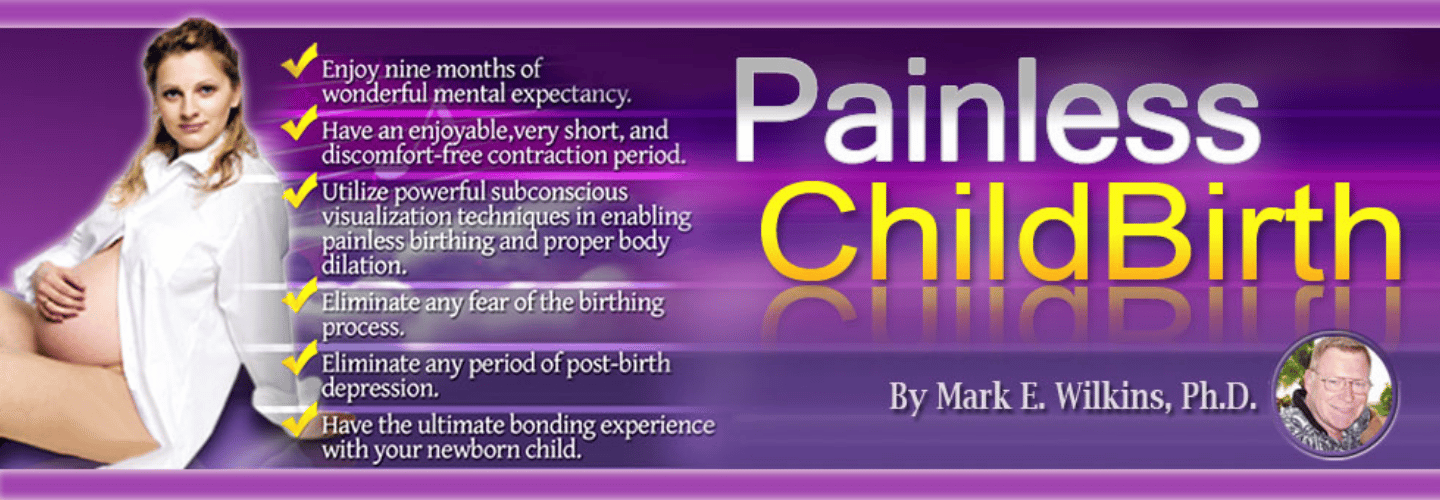
Hypnosis for pain-free childbirth offers a unique perspective on managing labor discomfort by harnessing the power of the mind. Through deep relaxation techniques and altering the perception of pain, hypnosis opens doors to a calmer and more controlled birthing experience. But how exactly does this mind-body connection impact the intensity of contractions and the overall birth process? Let's explore the intricacies of hypnosis in childbirth and uncover the compelling reasons why more mothers are turning to this alternative approach for a gentler entry into motherhood.
Benefits of Hypnosis for Childbirth
Hypnosis for childbirth offers expectant mothers a natural and empowering method to manage pain and anxiety during labor. Women using hypnosis as a pain relief method experience significant relief during childbirth, making it a valuable tool in pain management. By providing a way to reduce the overall labor pain, anxiety, and fear, hypnosis serves as a non-pharmacological option that many women find beneficial.
The benefits of hypnosis for childbirth extend beyond just pain relief. Studies have shown that women who incorporate hypnosis into their birthing experience often require less pain medication and have lower rates of interventions during labor. This reduction in the need for pharmacological pain relief methods can lead to shorter labor durations and more spontaneous deliveries, ultimately improving maternal outcomes. Additionally, improved APGAR scores in babies born to mothers who used hypnosis further highlight the positive impact this technique can have on the childbirth experience.
How Hypnosis Reduces Labor Pain
Hypnosis in labor is a powerful tool that can alter the perception of pain and discomfort, offering women a sense of relief during childbirth.
By utilizing relaxation techniques, hypnosis helps women manage labor pain more effectively.
Understanding how hypnosis reduces labor pain can empower expectant mothers to contemplate this option for a more comfortable birthing experience.
Pain Perception Alteration
During labor, the application of hypnosis techniques results in a notable alteration of pain perception by inducing a focused state of inner absorption and responsiveness to positive suggestions. Hypnosis for childbirth aims to reduce labor pain by influencing neural activity associated with pain perception.
By promoting relaxation and distraction, hypnotherapy for childbirth helps women in the hypnosis group manage labor pain without the need for extensive pain medication. This approach not only addresses physical discomfort but also targets maternal fear and anxiety, enhancing coping strategies during delivery.
Studies have shown that hypnosis during labor can lead to shorter labor durations and improved overall delivery experiences by reframing perceptions of pain as manageable and temporary, offering a holistic approach to pain management.
Relaxation Techniques Effectiveness
Labor pain management through relaxation techniques plays a pivotal role in altering perceptions and enhancing coping strategies during childbirth. When it comes to hypnosis for pain-free childbirth, the effectiveness of relaxation techniques is paramount. Here are some key ways in which hypnosis reduces labor pain:
- Hypnosis induces a state of inner focus and absorption.
- Positive suggestions in hypnosis alter perceptions, mood, and thoughts related to childbirth pain.
- Hypnosis helps combat negative childbirth associations and promotes relaxation during labor.
- By narrowing attention and increasing suggestibility, hypnosis decreases awareness of external stimuli and pain sensations.
Utilizing techniques such as self-hypnosis or guided hypnotherapy can greatly contribute to achieving a more comfortable and pain-free childbirth experience.
Impact on Labor Duration

Research has consistently shown that using hypnosis during childbirth can markedly shorten labor duration.
Women utilizing hypnosis techniques tend to experience enhanced labor progress and a faster overall birth experience.
The correlation between hypnosis and reduced labor times suggests a potential for a more efficient and quicker childbirth process.
Labor Time Reduction
Studies have consistently shown a correlation between the use of hypnosis during childbirth and decreased duration of labor. When contemplating hypnosis for pain-free childbirth, the potential reduction in labor time is a significant factor. Here are a few key points to ponder:
- Hypnosis during labor has been associated with shorter labor durations, promoting efficient childbirth experiences.
- Research indicates that employing hypnosis techniques can help reduce the time spent in labor, leading to quicker delivery experiences.
- Women who integrate hypnosis during childbirth tend to have shorter hospital stays due to decreased labor durations.
- The use of hypnosis has been linked to faster labor progression, contributing to more comfortable childbirth experiences and potentially benefiting both mothers and babies.
Enhanced Labor Progress
When considering the impact of hypnosis on labor duration during childbirth, a notable correlation has emerged between the use of hypnosis techniques and enhanced progression through the birthing process. Studies from the USA and UK have shown that hypnosis can lead to faster labor progress, ultimately reducing the overall time spent in childbirth.
Women utilizing hypnosis techniques may undergo expedited labor compared to traditional pain management methods, potentially resulting in quicker and more efficient deliveries. The positive influence of hypnosis on labor progress is evident, with research indicating shortened labor times and improved outcomes regarding labor duration.
This highlights the significance of hypnosis for achieving a smoother and more timely childbirth experience, emphasizing the benefits of incorporating hypnosis for pain-free childbirth.
Faster Birth Experience
Hypnosis during childbirth has consistently demonstrated a significant impact on labor duration, leading to faster and more efficient birth experiences for women. Research studies have highlighted the following key points:
- Hypnosis interventions have been linked to reduced time spent in labor, resulting in quicker delivery outcomes.
- Women utilizing hypnosis techniques tend to experience shorter labor durations, making the childbirth process more efficient.
- Studies indicate a consistent trend towards faster birth experiences when hypnosis is incorporated during labor.
- The use of hypnosis during childbirth has shown a positive correlation with quicker delivery, contributing to a smoother and more pain-free birth experience.
Improving Delivery Experiences

Enhancing the delivery experience for expectant mothers involves exploring alternative methods that can provide pain relief and promote a sense of empowerment during labor. Hypnosis has emerged as a promising technique for pain management during childbirth, with studies indicating numerous benefits.
Women utilizing hypnosis during labor have reported shorter durations of labor and reduced reliance on pain medication, leading to more positive delivery experiences. Additionally, the use of hypnosis has been associated with fewer surgical interventions, contributing to improved maternal outcomes overall.
Furthermore, women who incorporate hypnosis into their childbirth experience often report feeling less discomfort, pain, and anxiety, fostering a sense of empowerment during labor. This can lead to a more positive and fulfilling delivery experience.
Notably, hypnosis has also been linked to better APGAR scores for newborns, suggesting potential benefits for infant health. By reducing the need for narcotic medications and other interventions, hypnosis interventions in labor have the potential to enhance the overall delivery experience for both mothers and their newborns.
Reducing Medication Use
Utilizing hypnosis techniques during childbirth has demonstrated a notable reduction in the reliance on analgesia and pain relief medications, offering a promising approach to minimizing medication use during labor. This alternative method can positively impact the childbirth experience by potentially decreasing the need for pharmacological interventions. Here are some key points regarding the role of hypnosis in reducing medication use during childbirth:
- Studies have shown that women using hypnosis during labor required less epidural painkillers compared to those receiving standard care.
- Hypnosis has been associated with lower usage of analgesic medications, indicating a potential for a more natural birthing process.
- Research suggests that hypnosis preparation may lead to a decrease in the need for pain relief medication and interventions during childbirth, promoting a more holistic approach to labor.
- Additionally, hypnosis has been linked to a reduction in the need for labor augmentation with oxytocin in some studies, potentially lowering the risk of birth complications associated with medication use.
Minimizing Interventions

When considering childbirth, minimizing interventions can be a significant goal for many expecting mothers.
Hypnosis for pain-free childbirth offers a holistic approach to labor, promoting natural pain management methods and reducing the need for medical interventions.
Lowering Medical Interventions
An approach that has gained attention in childbirth is the utilization of hypnosis to reduce the necessity for medical interventions during the labor process. Hypnosis has shown promising results in lowering the reliance on analgesic medications and other medical interventions, promoting a more natural delivery experience.
Here are some ways hypnosis can help in lowering medical interventions during childbirth:
- Decreases the use of pain relief medication, tranquilizers, and oxytocin.
- Shortens labor durations and reduces the need for surgical interventions.
- Minimizes discomfort, pain, and the requirement for pain relief medications.
- Encourages more spontaneous deliveries and decreases the use of narcotics and oxytocin, fostering a less medically intervened childbirth experience.
Natural Pain Management
Hypnosis as a natural pain management technique in childbirth not only reduces the need for medical interventions but also empowers women to embrace a more holistic approach to pain relief during labor. By incorporating hypnosis into their birthing experience, women can effectively manage labor pain without heavy reliance on pharmacological interventions like analgesia.
This aligns with the preference for natural childbirth and promotes a sense of control and well-being. Studies have shown that hypnosis can lead to lower analgesia use, offering a more natural and holistic birthing process.
Choosing hypnosis for pain management during childbirth enables women to navigate the intensity of labor pain with a greater sense of empowerment and mindfulness, fostering a positive birthing experience.
Promoting Spontaneous Deliveries
Promoting the occurrence of spontaneous deliveries is a key benefit observed in studies exploring the use of hypnosis for pain-free childbirth. Hypnosis for pain-free childbirth has shown to have a significant impact on childbirth outcomes, particularly in promoting natural and unassisted births. Here are some ways in which hypnosis can help in promoting spontaneous deliveries:
- Reducing the need for medical interventions: Hypnosis techniques during labor have been linked to a decreased requirement for medical interventions, allowing for a more natural birthing process.
- Higher likelihood of natural, unassisted births: Research indicates that women using hypnosis during childbirth are more likely to have natural, unassisted deliveries, emphasizing the role of hypnosis in promoting a less interventionist approach.
- Greater rate of spontaneous deliveries: Studies suggest that women practicing hypnosis during labor tend to experience a higher rate of spontaneous vaginal deliveries, highlighting the positive impact of hypnosis on birthing outcomes.
- Promoting natural childbirth: By reducing the need for medical interventions, hypnosis practices support the concept of natural childbirth, empowering women to embrace a more holistic birthing experience.
Maternal Well-being and Hypnosis

In addition, enhancing the overall well-being of expectant mothers, hypnosis during childbirth has been demonstrated to markedly improve maternal outcomes and experiences. Studies indicate that utilizing hypnosis during labor can lead to shorter labor durations and decreased reliance on pain medication, promoting maternal well-being.
By reducing the use of narcotic medications and tranquilizers, hypnosis contributes to a more positive childbirth experience for mothers. Moreover, hypnosis has been associated with a higher likelihood of spontaneous deliveries and a decreased need for surgical interventions, emphasizing the benefits of this practice for maternal well-being during childbirth.
Additionally, mothers who undergo hypnosis during childbirth often report better pain management, reduced anxiety levels, and increased satisfaction with the labor and delivery process, highlighting the holistic advantages of hypnosis in promoting maternal well-being.
Ultimately, hypnosis not only enhances maternal outcomes but also supports a more positive and empowering childbirth experience for expectant mothers.
Empowering Childbirth Experiences
Empowering women during childbirth involves fostering a sense of control and active participation in the pain management process, ultimately leading to a more positive and fulfilling birth experience. When hypnosis is utilized in childbirth, it offers a range of benefits that contribute to this empowerment:
- Shorter Labor Durations: Research indicates that hypnosis techniques can lead to reduced labor durations, potentially making the birthing process smoother and less physically taxing.
- Decreased Need for Pain Medication: Women using hypnosis during labor often require less pain medication, allowing them to be more present and alert during the birth of their child.
- Enhanced Relaxation: Hypnosis promotes deep relaxation, helping mothers stay calm and focused, which can be instrumental in managing the intensity of childbirth.
- Positive Mindset: By addressing anxiety and fear through hypnosis, women can enter labor with a more positive mindset, setting the stage for a more empowering and satisfying birth experience.
Hypnosis as a Valuable Choice

In the domain of childbirth, hypnosis stands out as a valuable option for pain management and empowerment. Research indicates that hypnosis can effectively reduce the need for analgesia during childbirth, offering a non-pharmacological approach to pain relief. By potentially decreasing the reliance on pain medication during labor, hypnosis presents itself as a safer alternative for both the mother and the baby.
Studies further suggest that hypnosis in childbirth may lead to shorter labor durations, fewer interventions, and overall improved delivery experiences for women. Additionally, the use of hypnosis has been associated with positive maternal outcomes such as increased rates of spontaneous deliveries, reduced medication use, and improved APGAR scores for newborns.
The training in hypnosis for childbirth has shown numerous benefits, including enhanced pain thresholds, decreased medication usage, and shorter labor times. These findings underscore hypnosis as a valuable choice for those seeking a pain-free childbirth experience.
Frequently Asked Questions
How Does Hypnotherapy Help With Pain in Labor and Delivery?
Hypnotherapy aids in pain management during labor and delivery by tapping into the mind-body connection. It incorporates relaxation techniques, breathing exercises, and positive affirmations to help women mentally prepare for childbirth.
By reducing stress and promoting self-hypnosis skills, hypnotherapy offers emotional support and decreases pain perception.
What Are the Benefits of Hypnosis During Pregnancy?
Hypnosis during pregnancy offers a myriad of benefits that can positively impact both the expectant mother and her baby. Through the utilization of relaxation techniques, positive affirmations, and self-hypnosis skills, pregnant individuals can experience reduced stress levels, increased confidence, and better pain management during labor.
Why Is Hypnosis Effective in Reducing Pain?
Hypnosis is effective in reducing pain due to its ability to enhance mental preparation, relaxation techniques, pain management, visualization exercises, and the mind-body connection.
Is Hypnosis an Effective Method for Improving the Experience of Childbirth for Mothers?
Hypnosis can greatly enhance the childbirth experience for mothers. It offers emotional support, aids in mental preparation, and teaches relaxation techniques.
By fostering a positive mindset, managing pain, and serving as an empowerment tool, hypnosis reduces stress, builds confidence, and strengthens the mind-body connection.
Conclusion
To sum up, opting for hypnosis for pain-free childbirth offers a transformative journey through labor, like a soothing melody guiding you through the waves of discomfort.
With its ability to enhance relaxation, reduce pain perception, and empower mothers, hypnosis becomes a valuable tool for a more comfortable and satisfying birthing experience.
Embrace the power of hypnosis and commence on a path towards a serene and empowering childbirth journey.





